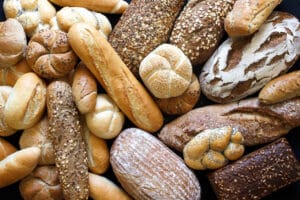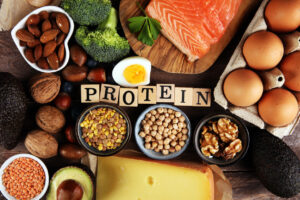It is a well-known fact that the foods you eat can have a drastic impact on your health and well-being. Knowing that, many of us try to watch what we eat. We choose foods that balance flavor with nutritional value and limit those high in processed sugars, salts, and fats. We rely on information from the scientific minds who study nutrition to know which foods are healthy and which are not—but sometimes those scientific minds don’t have all the information just yet.
Here are three prevailing myths about food from as recently as the late 19th and early 20th centuries.
Food Myth #1: Negative Calorie Foods Exist

The idea of negative calorie foods became popular in the early 1990s as a simple but effective way to lose weight. The theory was that some foods were so low in calories that they actually burned more calories to digest them than they contained. Foods commonly listed as negative calorie foods include celery, lettuce, broccoli, and cucumber, and they tend to be low-calorie foods that are high in water content. Although not strictly foods, ice water, and chewing gum also frequently make the list of “negative calorie foods.”
While these foods are low in calories and may help reduce fat by replacing higher-calorie foods, they still provide the body with more calories than digesting them. The only one of these to have even a shred of validity is ice water, as it has zero calories, and a few calories are required to warm up the body after drinking it. Even in this instance, the effects are so trivial that the difference is irrelevant.
Food Myth #2: Eggs are the Enemy

Eggs are an incredible and compact source of calories and protein that are coveted by many creatures. Wildlife, from insects to mammals, prey on eggs of all sorts, including fish eggs, bird eggs, and reptile eggs. Eggs have been a part of the human diet for thousands of years. They contain several essential amino acids as well as significant amounts of vitamins A, B12, and D, riboflavin, and zinc. In addition, chickens fed a diet high in omega-3-rich foods also produce eggs that are high in omega-3s.
Unfortunately, eggs have not always been smiled upon by the medical community. In the 1960s, researchers identified a correlation between increased cardiovascular disease and high levels of cholesterol in the blood. A single large chicken egg contains approximately 186 mg of cholesterol, concentrated almost entirely in the yolk. In 1968, the American Heart Association began recommending no more than 300 mg of dietary cholesterol per day. They also specified that adults should consume no more than three egg yolks a week.
While chicken eggs are the most commonly consumed egg in the developed world, they are not the only edible egg in the game. Other bird eggs are also frequently dined upon, including duck, goose, and quail eggs, and each contains differing amounts of cholesterol.
Types of Eggs
- Turkey eggs are typically twice the size of a large chicken egg and contain about 737 mg of cholesterol.
- Quail eggs are much smaller than chicken eggs, with 4 to 5 quail eggs equaling one chicken egg. Each quail egg contains 76 mg of cholesterol.
- Goose eggs are about three times larger than chicken eggs and contain approximately 1,227 mg of cholesterol per egg.
- Duck eggs are just slightly larger than chicken eggs, and each contains an average of 619 mg of dietary cholesterol.
- A single ostrich egg is equivalent to 28 chicken eggs and contains a total of approximately 5208 mg of cholesterol.
Our knowledge about how cholesterol works has matured since the 1960s. We now know that dietary cholesterol has far less of an effect on blood cholesterol than previously believed. In 2002, the AHA removed egg-specific restrictions from its recommendations. A newer study found no increase in the risk of heart failure for individuals eating up to six eggs per week, though egg consumption greater than six per week still seems to increase the risk of heart failure.
Food Myth #3: Spicy Foods Cause Ulcers

The prevailing wisdom in the 1980s said that eating spicy foods and experiencing stress were the main culprits that led to stomach ulcers. Remedies included a bland diet, stress relief exercises, and antacid medications. Not only are spicy foods not responsible for the formation of ulcers, but capsaicin, the active principle in many peppers, has even been shown to inhibit acid production in the stomach rather than increase it. This means it is more likely to inhibit than instigate the formation of ulcers.
Early in the 80s, scientists in Australia uncovered the true culprit triggering the mucosal lining of the stomach to thin and ulcers to develop: a bacteria, H.Pylori, commonly found in the human digestive tract, which can be treated with an antibiotic.
While spices themselves do not trigger ulcers, they can trigger symptoms of indigestion or irritable bowel syndrome for individuals who already have these conditions. This is especially true when it is also rich or high in fat. In addition, spicy meals can exacerbate both tissues in the esophagus that are inflamed due to acid reflux and gastric ulcers that have already formed.
It is absolutely astounding how much we are learning about how our food affects our health. Sometimes we find that something we absolutely believed to be true simply isn’t, from the five-second rule to the food pyramid, and we have to shift our thinking. The three examples given here are only a few of the things we once believed to be true that we were mistaken about, highlighting the importance of keeping current with nutrition findings.
Read Next:







